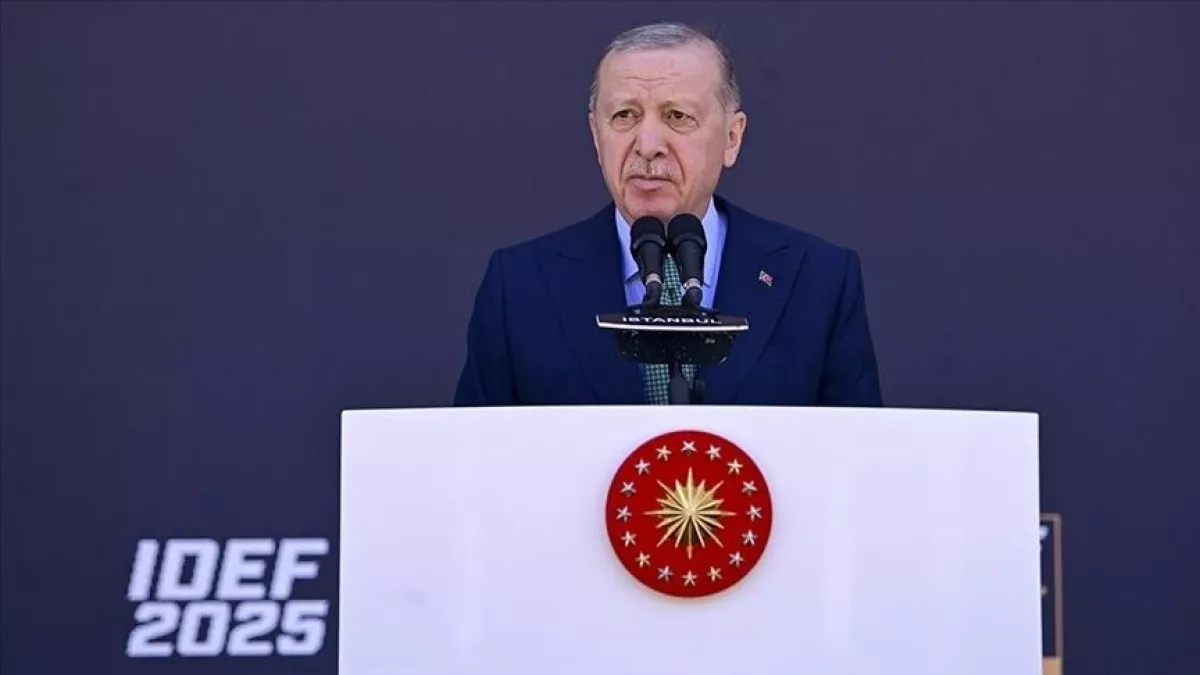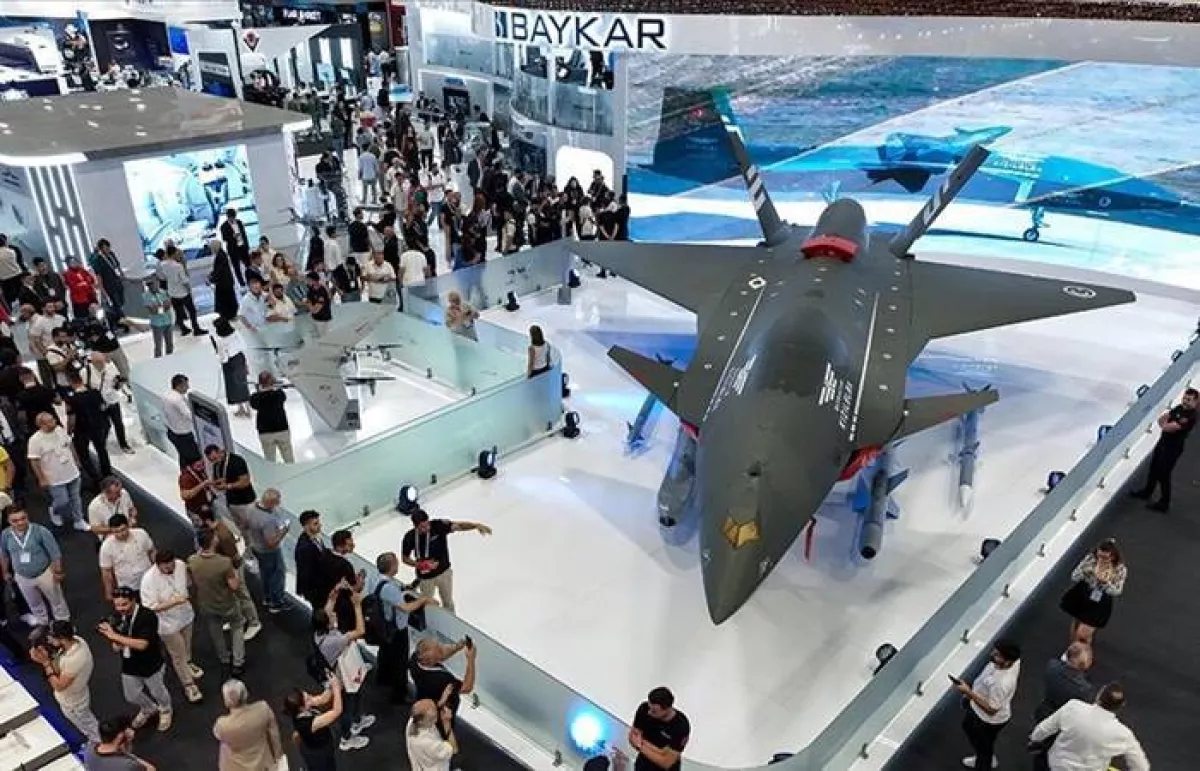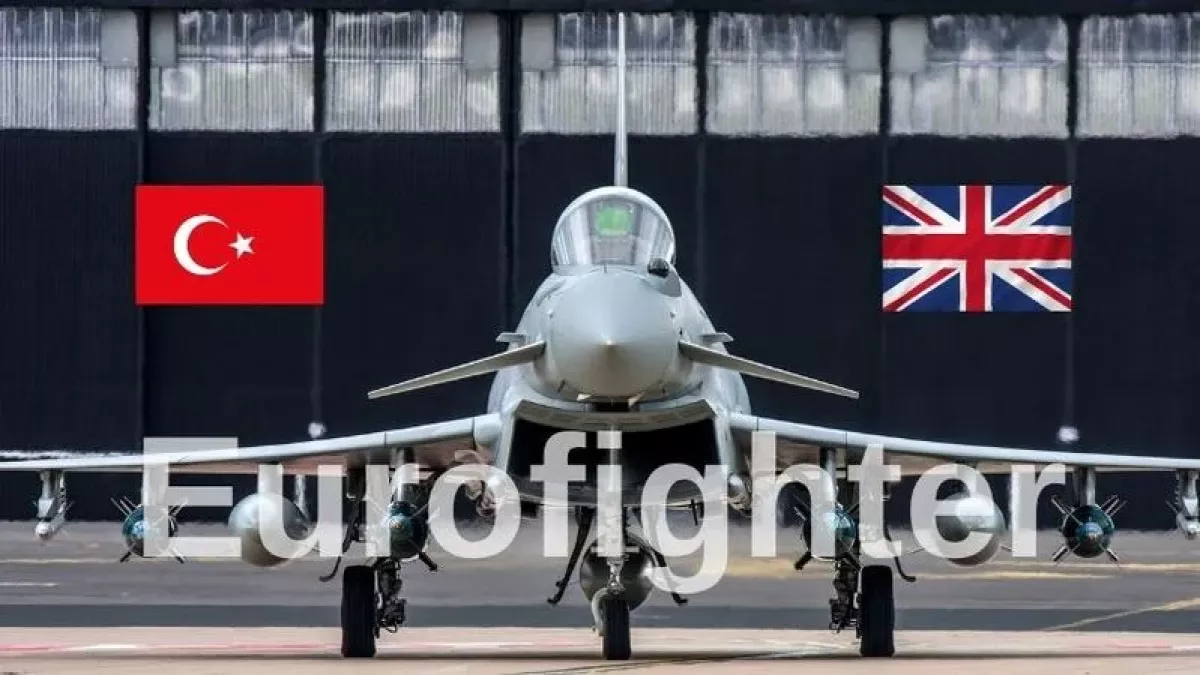Turkish defence industry: from importer to exporter Drones, warships, jets
Turkish President Recep Tayyip Erdoğan has announced that Türkiye signed defence export contracts worth more than $5.8 billion at the IDEF 2025 arms exhibition held in Istanbul.

"The total value of contracts signed at the exhibition exceeded $9 billion," he added. IDEF, the largest biennial defence industry exhibition, took place from July 22 to 27 and brought together over 900 Turkish and 400 foreign defence companies, as well as 44 national pavilions.
While not all agreements signed at the exhibition were made public, major deals reported by international media include arms sales contracts with several South Asian countries, particularly Indonesia and Malaysia.
Among the agreements signed during the IDEF is a contract between Türkiye and Indonesia under which Ankara will deliver 48 domestically produced KAAN fighter jets to Jakarta. This marks the first export deal for the advanced aircraft model, which is currently under development and is expected to enter service in Türkiye in the 2030s.
Another debut for Turkish defence exports came in the form of locally developed MILGEM-class frigates. Ankara and Jakarta signed a contract for the sale of two warships at the exhibition. Although the total value of the deal was not disclosed, experts estimate it to be around $1 billion.
Turkish drone manufacturer Baykar, continuing to expand Ankara’s defence footprint in Asia, announced a strategic partnership with South Korea’s Korean Air for the joint development and production of unmanned aerial vehicles. These developments come amid the growing success of Turkish military exports, which reached a record $7.15 billion last year—approximately 30% higher than in 2022. Turkish arms exports have been increasing by 20–30 per cent annually.

The fact is that Türkiye is striving to avoid the consequences of its NATO allies’ inconsistent policies—policies that sometimes allow it to procure certain types of weapons, only to later halt deliveries. Moreover, Ankara spends considerable sums on purchasing various weapon components from the West, which results in financial strain, especially amid the depreciation of the Turkish lira.
While the weak lira benefits exporters, it poses challenges for imports. For all these reasons, Türkiye is purposefully building a self-sufficient weapons production ecosystem in order to drastically reduce its dependence on the United States and European Union countries. Additionally, Turkish defence firms are seeking closer integration with South Korean arms manufacturers, given South Korea’s strong defence industrial base.
Still, alongside the drive to produce and export weaponry, Ankara remains reliant on arms imports and is undergoing a rapid rearmament process, focusing primarily on developing its air force, air defence, and missile systems. The country intends to purchase 40 fighter jets from the European Union.
Here, too, IDEF played a significant role. Reports indicate that as part of the negotiations conducted around the exhibition, Türkiye managed to overcome a key obstacle by announcing a deal with the United Kingdom to acquire 40 state-of-the-art Eurofighter Typhoon jets. The Eurofighter is manufactured by a four-nation consortium that includes Germany, Italy, Spain, and the UK.
Previous coalition governments in Germany, led by centre-left parties, had delayed the sale for years. However, the new coalition government of the Christian Democratic Union (CDU), headed by Chancellor Friedrich Merz, gave the green light earlier this week.
Harun Reşit Aydin, a Turkish-German analyst, geopolitical expert, and former officer in the German army, told Al-Monitor that the Eurofighter deal is “90 per cent settled—unless unforeseen issues arise or Ankara withdraws from the agreement.”

Aydin noted that Berlin’s decision will become official once the German Federal Security Council—which oversees international arms sales—approves the deal. According to Defense News, some expect the total cost of the Eurofighter purchase to reach €4 billion (approximately $4.7 billion), though others believe the price is likely to rise due to additional options such as spare engines, European-made weaponry, and the potential integration of Turkish munitions.
The Eurofighter is a highly manoeuvrable air-combat aircraft equipped with a powerful radar system, enabling it to engage enemy aircraft at long ranges. The acquisition and integration of these jets with Turkish weapons will not only enhance the combat capabilities of the Turkish Air Force but also contribute to the further development of Türkiye’s own defence industry.
Previously, Türkiye had expressed interest in purchasing 40 of the latest F-16 Block 70 fighter jets from the United States, along with 80 upgrade kits to modernise its existing F-16 fleet to the same standard. However, the fate of that deal remains uncertain. It is possible that Türkiye may abandon the F-16 deal altogether if the U.S. government allows it to acquire the more advanced American F-35 fighter jets instead.








